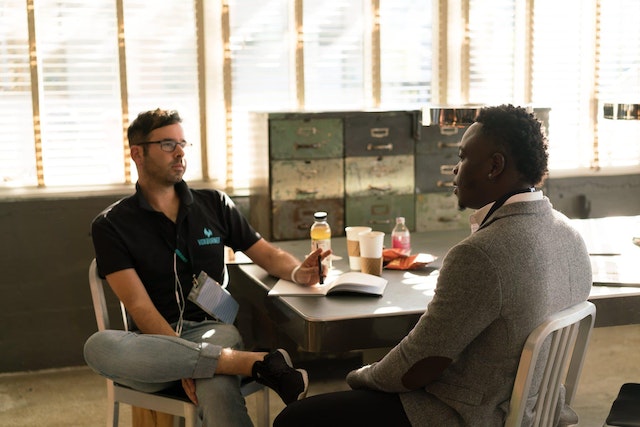Are you a people person? Do you love to communicate and interact with others?

Are you a people person? Do you love to communicate and interact with others? If so, then learning how to better communicate is essential for both your personal and professional life. There are many different ways to learn how to better communicate with others. You can take classes, read books, or even attend workshops. But the best way to learn is by doing. Practice makes perfect, after all! If you want to improve your communication skills, here are some tips to get you started!
Identify the areas that require improvement
Collaboration between team members and a detailed assessment of all processes can help to identify areas that require improvement with a greater level of accuracy. Once those areas are defined, strategies for implementing certain changes can be devised and put into practice. It’s important to strike a balance between a proactive approach and reacting quickly to small issues that may arise. By taking a careful look at processes, organizations can make sure they’re running a well-oiled workflow at all times. Furthermore, there are plenty of different ways for you to learn this; From joining a therapy group, like a Process Group or even a Creative Writing Workshop to taking an online course, or reading books on the subject, there are numerous options available. Improvement is always the goal to strive for, whether it’s improving your own communication skills or those of your team.
Understand yourself and your own communication style
Knowing yourself and your communication style is one of the most important aspects of any personal or professional relationship. Tone, body language, and volume all contribute to the way we communicate with each other. To be effective in any situation, it is essential to tune into our own communication preferences and adjust accordingly when needed. Whether you’re speaking one-on-one or engaging in a group conversation, take the time to acknowledge how your unique communication style will affect the dynamic. Being aware of your own habits can help you build bridges and foster meaningful connections with those around you.
Take the time to listen to others and understand their point of view
As a leader, taking the time to truly understand what drives the people around you is incredibly valuable. By listening intently and understanding the perspectives of others, we can take strides toward greater partnerships, collaboration, and mutual success. It’s human nature to feel validated when our thoughts and words are heard and respected by those around us. Not only that but spending time to listen helps us build trust between colleagues – allowing us to move closer toward common goals. In order to create a productive work environment, it’s key that we recognize the value of everyone’s contributions – so be sure to take the time to really listen and understand all points of view.
Don’t be afraid to ask questions
Taking the time to ask questions when you’re embarking on a new project can save you from costly mistakes down the road. It may feel awkward, uncomfortable, or even scary to reach out for help with something that you think you should feel confident handling yourself. But trust us, there’s no shame in asking – it’s always better to err on the side of caution and be knowledgeable than overextend yourself unnecessarily. Asking questions not only ensures that your project is completed correctly, but also builds your knowledge and understanding of the subject matter. So don’t hesitate if you feel stuck; reach out and don’t be afraid to ask questions!
Be open to feedback, both positive and negative
Being open to feedback is a key trait of successful entrepreneurs. Allowing both positive and negative feedback to influence our decisions and actions allows us to grow as individuals, and can help our businesses reach their full potential. It may seem counterintuitive at first, but focusing too much on what other people think can impede personal growth. Learning to process the criticisms and acknowledgments others provide will not only improve our work ethic but our self-awareness as well. If we strive to be the best version of ourselves that we possibly can be, then being open to feedback, both positive and negative, should be a no-brainer.
Practice, practice, practice
Whether this is about writing, speaking to yourself in the mirror, reading or even taking an online course, all of these activities will help you hone your communication skills. Practicing different scenarios as well as how to respond in certain situations is necessary for personal and professional growth. Find what works best for you – whether it’s a podcast full of useful tips or even a workshop taking an online course, or reading books related to your field. Doing this will help you stay ahead of the game and make communication easier, more effective, and natural for all involved.
Most of us communicate every day, but how many of us take the time to really think about our communication style and whether or not it’s effective? If you want to be a better communicator, start by taking a step back and evaluating your own strengths and weaknesses. Then, make an effort to understand other points of view and learn from both positive and negative feedback. Lastly, don’t forget that practice makes perfect – the more you communicate, the better you’ll become at it.
Related Posts:
- How To Communicate Properly With Contractors During a Renovation
- How to Negotiate Salary After a Job Offer
- How to Properly Use Interactive Learning Methods to Help Your Kids Thrive
- Step By Step Guide On Finding The Perfect Neighborhood
- Teach your dog to communicate using talking buttons!